10 Essential Arabic Phrases You Need When Visiting Morocco
If you’re planning to visit Morocco, learning a few basic Arabic phrases can change your whole experience. Moroccan people are friendly and open, but when you speak a few words in their language, you create a deeper connection. In Morocco, the spoken language is a mix of Modern Standard Arabic (MSA), Moroccan Arabic (Darija), Berber languages, and French. But if you can speak basic Arabic, most Moroccans will understand you—even if you’re not perfect.
This guide gives you 10 important phrases you will actually use. Each phrase includes the Arabic script, English translation, and the transliteration (how to pronounce it using English letters). You’ll also find a short explanation for when and how to use each one. The goal is to help you sound respectful, connect with locals, and make your trip smoother.
I’ve been teaching Arabic to non-native speakers for over seven years. I specialize in reading and writing skills and use modern teaching methods for diaspora learners. These phrases are based on what tourists ask me the most. You don’t need to memorize grammar. You just need to know what to say and when.
Let’s begin with phrase number one.
Phrase 1
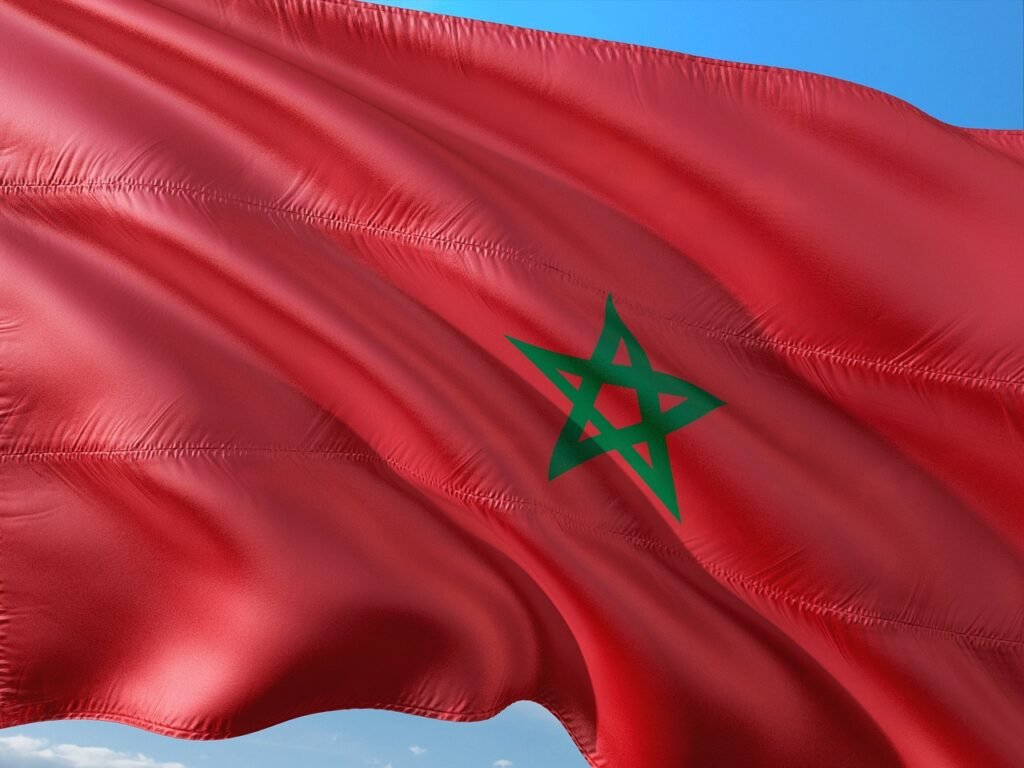
Phrase 1: السلام عليكم (As-salāmu ʿalaykum)
Translation: Peace be upon you
Transliteration: As-salamu alaykum
This is the first phrase you should learn before coming to Morocco. You’ll hear it everywhere. People say it when they enter a shop, walk past someone in the street, greet their neighbor, or start a conversation. It’s not just a greeting—it’s a sign of respect.
You don’t need to be Muslim to say it. It’s a cultural phrase more than a religious one here. Say it when you walk into a room or when someone says it to you first. The reply is: wa ʿalaykumu s-salām (وعليكم السلام).
Moroccans will smile when they hear you say this. It shows effort. It shows you care. It breaks the wall between you and them. You won’t sound perfect. That’s fine. What matters is that you try.
People sometimes say just “salam” (سلام) in casual moments. That’s okay. But if it’s your first time talking to someone, stick with the full version.
Say it like this:
As-sa-laa-mu a-lay-kum
Try it a few times until your tongue gets used to the sound.
You’ll use this every day in Morocco. Say it when you enter a taxi. Say it when you enter a riad. Say it to your guide. It works everywhere.
Phrase 2
Phrase 2: شكرا (Shukran)
Translation: Thank you
Transliteration: Shukran
This is one of the words you’ll use the most in Morocco. Whether someone gives you directions, serves you tea, hands you your change, or lets you pass in the street, just say shukran. It’s short, polite, and expected.
Moroccan people appreciate small gestures. Saying shukran after any act of service or help, no matter how small, shows manners. It also signals that you’re not a typical tourist who ignores the local culture.
You’ll also hear another word: barakallahu fik (بارك الله فيك). It means “may God bless you.” Locals use it more often than shukran, especially in rural areas. But shukran is simple and always works.
Don’t confuse shukran with afak (عفاك). Afak means “please,” not “thank you.” We’ll talk about that in another phrase.
Here’s how to pronounce it:
shook-ran
Make the “sh” soft. Keep it quick. Don’t overthink it.
Say it when someone pours your mint tea. Say it after you leave a taxi. Say it when the hotel staff brings you something. It works in every situation. You won’t need to say anything else. Just smile and say shukran.
Phrase 3
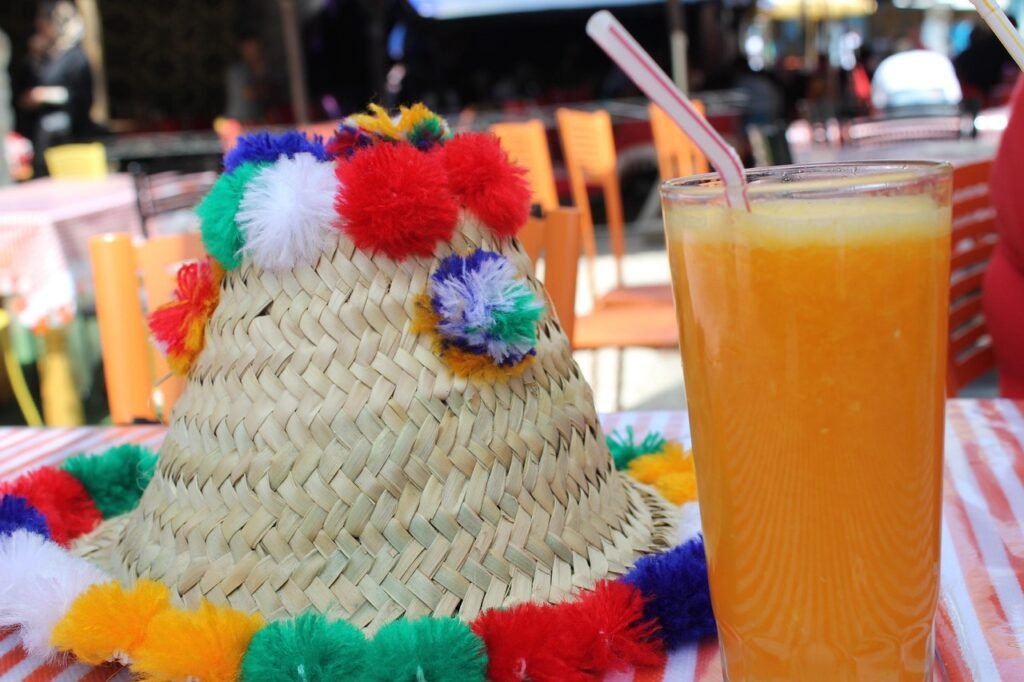
Phrase 3: عفاك (ʿAfāk)
Translation: Please
Transliteration: Afak
This is how you say “please” in Morocco. You’ll need it all the time. When you ask for directions. When you order food. When you want someone to slow down their speech. One word—afak—makes you sound polite and respectful.
In Arabic, this word literally means something like “have mercy” or “be kind,” but in Morocco, it’s just the everyday way of saying “please.” It works with men, women, old, young—everyone.
Here’s a normal example:
You’re in a café. You want a mint tea. Just say:
Afak, bghit atay.
(Please, I want tea.)
Another one:
Afak, fin jay l-hammam?
(Please, where is the hammam?)
Simple. Clear. Local.
Say it like this: a-fak
Two syllables. Keep it soft. Don’t stress too much about the “ʿ” at the beginning. Most people will understand even if you skip it.
If you’re speaking to more than one person or want to be extra polite, you can say afakom (عفاكم). But afak is enough for daily use.
Use it every time you ask for something. Even if you don’t know any other Arabic, starting your sentence with afak changes the energy. People are more open. They listen. They help.
Phrase 4
Phrase 4: بكم هذا؟ (Bikam hādhā?)
Translation: How much is this?
Transliteration: Bikam hadha?
If you plan to visit any market, shop, or street stall in Morocco, you need this phrase. Don’t expect price tags everywhere. In many places, especially souks, prices are spoken, not written. Sellers wait for you to ask.
Bikam hadha? means “How much is this?”
Point at the item and say it. You don’t need a full sentence.
Here’s a real example.
You see a leather bag in the market. You want to ask the price.
Just say:
Bikam hadha?
The seller will respond with a number. Usually in Moroccan Arabic or French. If you don’t understand, gesture or ask them to repeat.
Say it like this:
bee-kam ha-dha
Three clear sounds. Don’t stress too much on grammar. Locals will understand even if you mispronounce a little.
You can also say:
bshHal hadshi? (Moroccan Darija)
It’s more common in informal markets. But if you stick to bikam hadha, it’s enough.
Practice saying it while pointing at something. Practice it with shopkeepers. You’ll use this sentence every single day if you visit the souks in Marrakech, Fes, or Casablanca.
Phrase 5
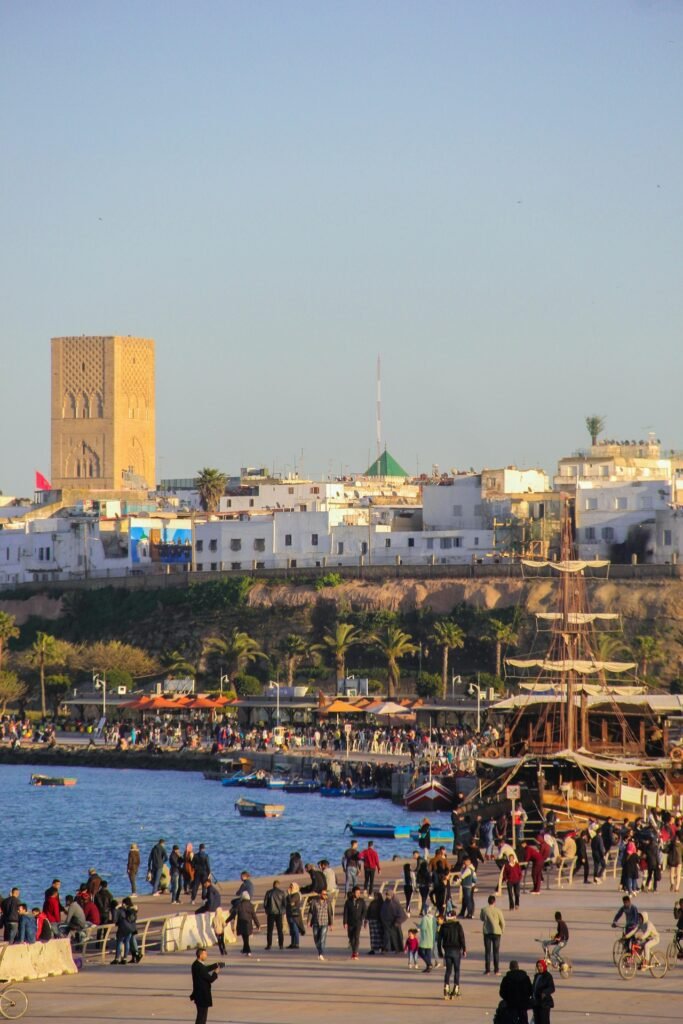
Phrase 5: فين هو الحمام؟ (Fīn huwa l-ḥammām?)
Translation: Where is the bathroom?
Transliteration: Fin huwa l-hammam?
You won’t last long in Morocco without asking this question. At some point, in a market, a café, or a station, you’ll need a restroom. Don’t wait until it’s urgent. Learn this phrase now.
The word “ḥammām” in Arabic literally means bathhouse. But in everyday Moroccan use, it also refers to the toilet. In modern places, people might use the French word “toilette”. Still, if you say fin huwa l-hammam, they’ll understand what you need.
Say it like this:
feen hoo-wa l-ham-mam
Four beats. Soft “h” sounds.
You can simplify it even more and just say:
Fin l-ḥammām?
Locals say this version all the time. The meaning is the same—“Where’s the bathroom?”
Use it in hotels, at restaurants, or in public places. Don’t worry if your pronunciation isn’t perfect. Just speak clearly and politely. If the person doesn’t answer, add afak (please) at the start:
Afak, fin l-ḥammām?
(Please, where is the bathroom?)
If they point or give directions, just follow the hand signals. If they answer in Arabic or French, just smile and ask again slowly.
Phrase 6
Phrase 6: لا أفهم (Lā afham)
Translation: I don’t understand
Transliteration: La afham
You’ll need this phrase the moment someone speaks to you quickly or uses words you don’t know. It’s short, respectful, and useful. Say it when you get lost in conversation. Say it when someone gives you directions too fast. Say it when a shopkeeper starts bargaining in full Darija.
La afham means “I don’t understand”. It’s not rude. In fact, Moroccans respect it more than pretending to understand. You’re being honest. Most people will slow down, switch to French, English, or use gestures.
Say it like this:
laa af-ham
Two parts. Keep it steady and clear.
You can also add afak in front to make it softer:
Afak, la afham
(Please, I don’t understand)
Or point to your ear and shake your head a little. It helps show your meaning.
In Moroccan Arabic (Darija), people say:
Ma fhemtsh (ما فهمتش)
That’s how locals say “I didn’t understand.” You can use that too if you feel confident. But la afham is simple, neutral, and works everywhere.
Use it when you’re confused. Use it to ask someone to repeat. Use it to control the conversation when you’re lost.
Phrase 7
Phrase 7: ممكن تساعدني؟ (Mumkin tusaʿidunī?)
Translation: Can you help me?
Transliteration: Mumkin tsaʿidni?
Sooner or later, you’ll need help in Morocco. Maybe you’re lost. Maybe you need to find a taxi. Maybe you don’t understand a menu. This phrase opens the door. Say it to a stranger, a shopkeeper, a police officer—anyone.
Mumkin means “can” or “is it possible”
Tsaʿidni means “you help me”
Put them together: Mumkin tsaʿidni? — “Can you help me?”
Say it like this:
moom-kin tsa-eed-nee
You can also add afak to be more polite:
Afak, mumkin tsaʿidni?
(Please, can you help me?)
You’ll be surprised how helpful people are when you ask this way. Moroccans are used to tourists needing help. They’ll usually slow down, walk you to a place, or even call someone else to assist.
Use it in the street if you’re confused. Use it in the train station. Use it if you lose something. It works in every city.
And if the person doesn’t understand English, just pointing at your phone with this phrase typed in Arabic often helps.
This one phrase can get you out of a lot of trouble.
Phrase 8
Phrase 8: أنا ضائع (Anā ḍāʾiʿ)
Translation: I’m lost
Transliteration: Ana dayeʿ
This is one of those phrases you don’t want to use, but you’ll be glad you know it when you need it. Morocco’s streets—especially in cities like Fes and Marrakech—can feel like a maze. Maps don’t always help. GPS can fail. Sometimes you just stop and realize you have no idea where you are.
That’s when you say: Ana dayeʿ
It means “I’m lost.”
Simple. Direct. People will understand.
Say it like this:
a-na da-yeʿ
Three parts. Don’t stress the “ʿ” at the end. Just try your best.
You can also add this if you want to be more polite:
Afak, ana dayeʿ.
(Please, I’m lost.)
What usually happens next is the person will ask where you want to go. Even if you don’t speak Arabic, you can show them the name of your hotel or riad on your phone. They might walk you there or explain with hand signals. Don’t panic. Most Moroccans will stop whatever they’re doing to help a lost visitor.
This phrase is especially helpful in the old parts of cities—the medinas. Use it when you feel stuck and need a real human to guide you.
Phrase 9
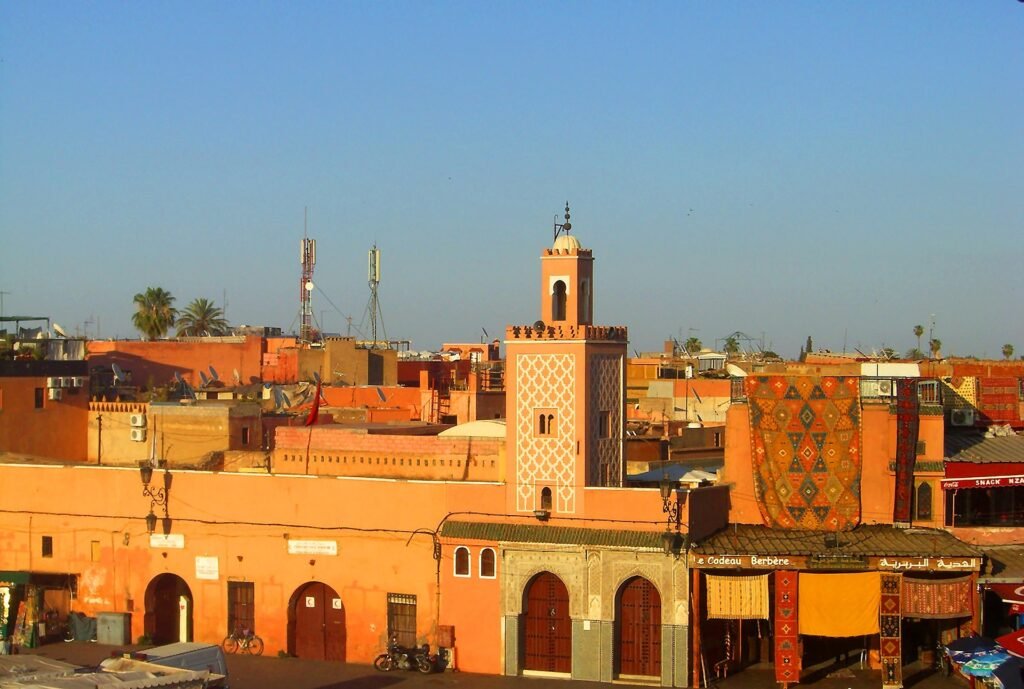
Phrase 9: بغيّت هذا (Bghīt hādhā)
Translation: I want this
Transliteration: Bghit hadha
When you are shopping in markets or shops, you need to say clearly what you want. This phrase means “I want this.” It’s direct and useful when pointing at an item.
Moroccan sellers expect you to bargain, so this phrase is your start. After saying bghit hadha, they will tell you the price or start the negotiation. Saying this shows you’re interested and ready to buy.
Say it like this:
bghit ha-dha
Two parts. The “gh” is a sound from the back of your throat. Don’t worry if you don’t get it perfect; just try.
You can also add afak to sound polite:
Afak, bghit hadha.
(Please, I want this.)
Use it when ordering food, too. For example:
Afak, bghit atay. (Please, I want tea.)
This phrase helps you communicate clearly without long sentences. It saves time and shows you know a bit of the language.
Phrase 10
Phrase 10: إلى اللقاء (Ilā al-liqāʾ)
Translation: Goodbye
Transliteration: Ila al-liqa
When you finish a conversation or leave a place, you need a polite way to say goodbye. Ilā al-liqāʾ means “until we meet again.” It’s a common and respectful way to end any interaction in Morocco.
You can say it to shopkeepers, taxi drivers, guides, or friends you’ve just met. It sounds nicer than just saying “bye” and shows you appreciate the time you spent with the person.
Say it like this:
i-la al-li-qa
Four parts. Say it slowly at first.
In casual situations, people also say bslama (بسلامة), which means “go safely.” Both work well, but ilā al-liqāʾ sounds more formal.
If you want to be extra polite, you can add shukran before it:
Shukran, ilā al-liqāʾ.
(Thank you, goodbye.)
Use this phrase when leaving a restaurant, a shop, or after meeting someone new. It leaves a good impression and keeps the door open for future meetings.
If you want to learn more Arabic, especially the kind spoken in Morocco, Ramdani Arabic Academy is a great place to start. The academy offers online courses designed for learners like you—people who want practical, useful Arabic for real-life situations.
The instructor, Mohamed Ramdani, has over seven years of experience teaching Arabic to non-native speakers. He focuses on helping students improve their reading and writing skills while also building speaking confidence. His teaching style is simple and clear, making it easier for you to learn without feeling overwhelmed.
Whether you want to master Moroccan Arabic or Modern Standard Arabic, the courses at Ramdani Arabic Academy give you the tools and support you need. You can find more details and sign up through the platform link below.
Feel free to visit these links to learn more about Mohamed Ramdani and the academy’s programs.
To help you further, I upload many detailed lessons and explanations on my YouTube channel. Watching these videos can boost your understanding and make learning easier.
Check out one of my useful videos here:
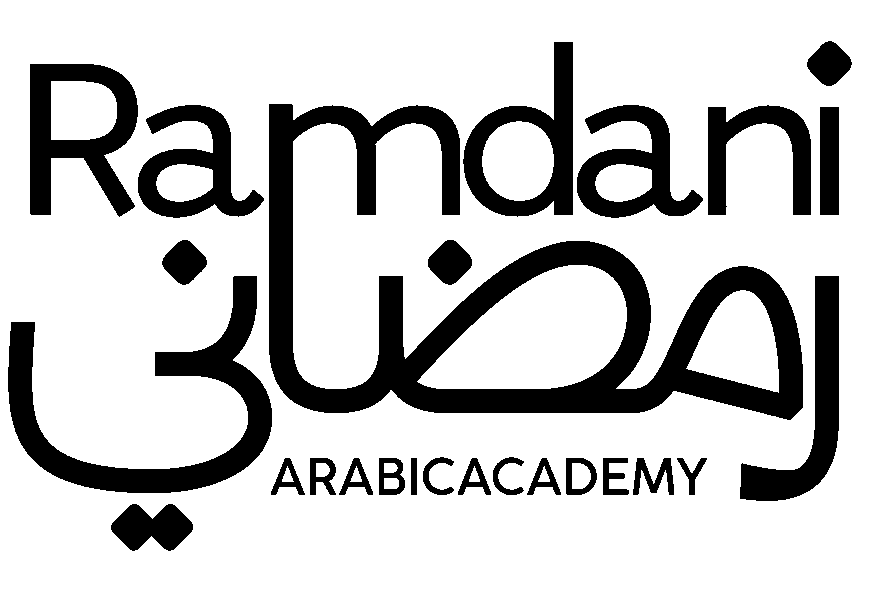
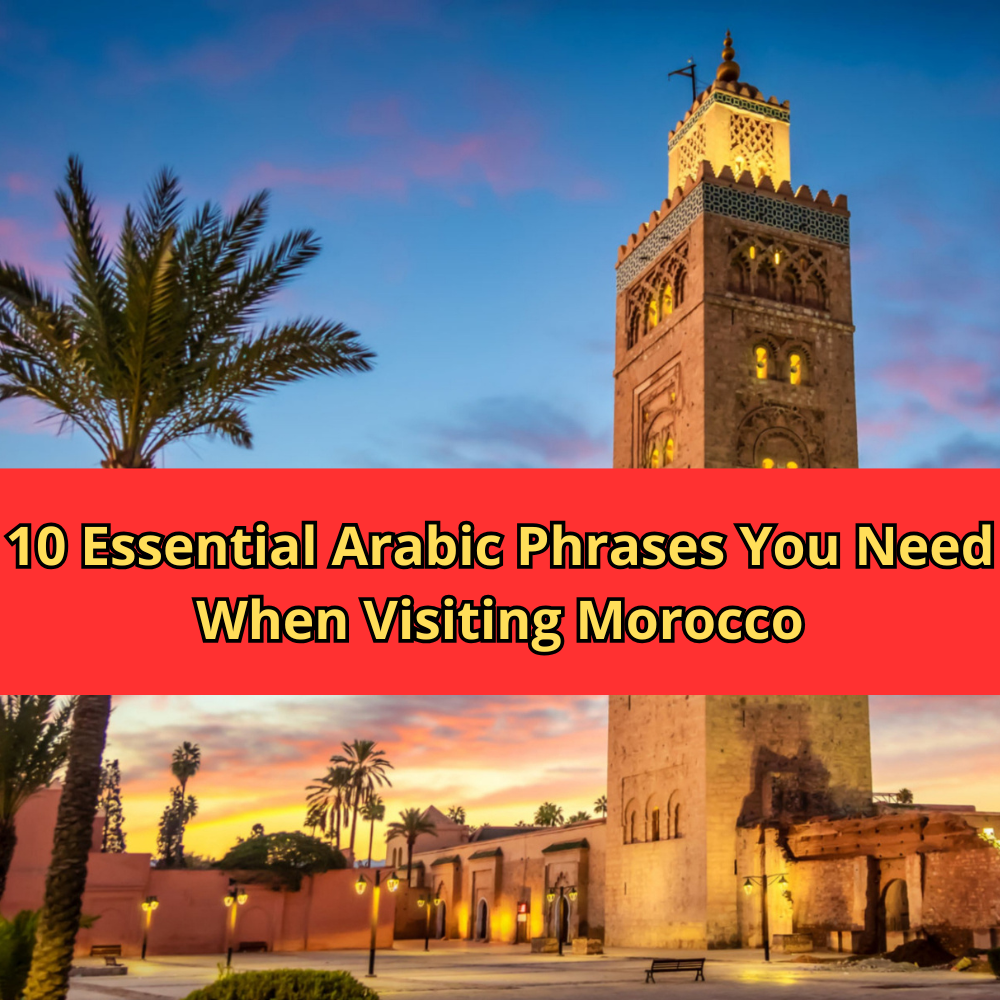
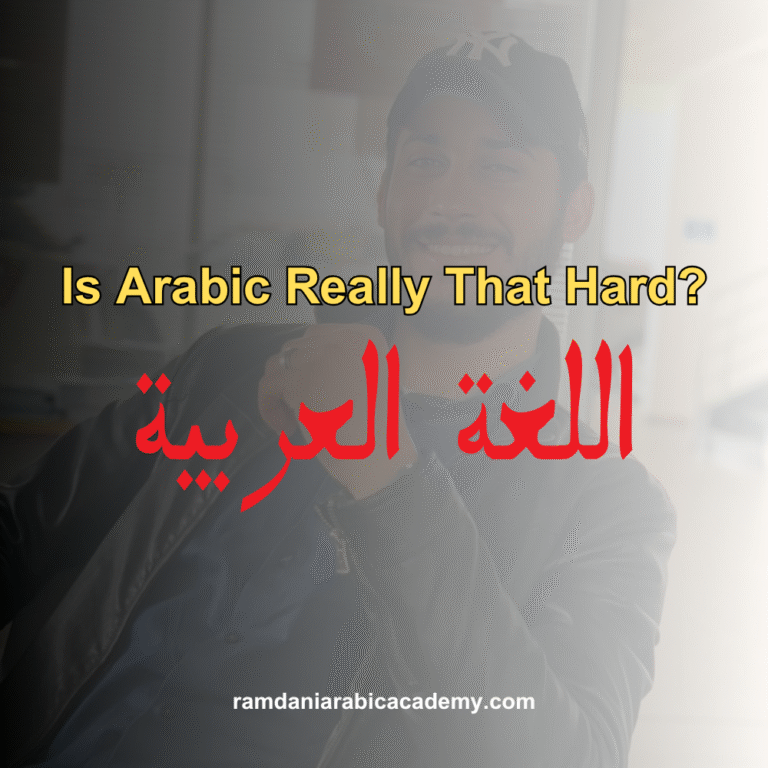


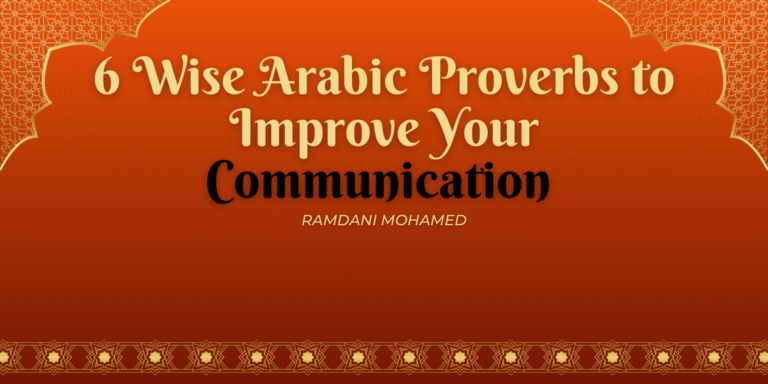

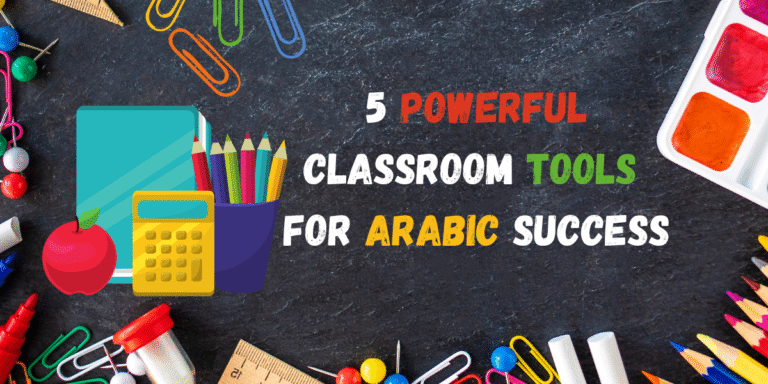
شكرًا على الموضوع والمعلومات القيمة التي قدمتها